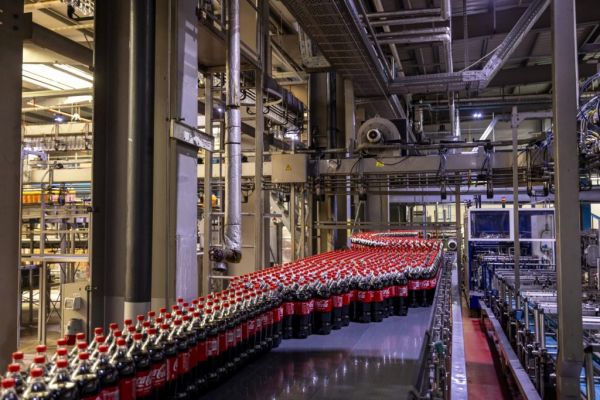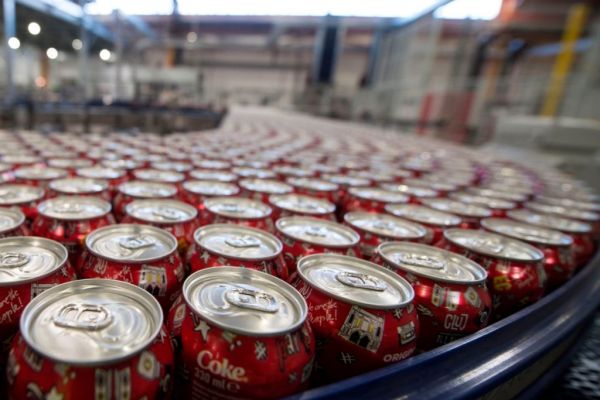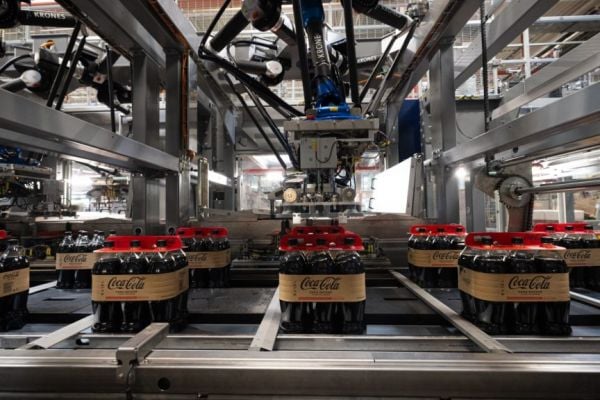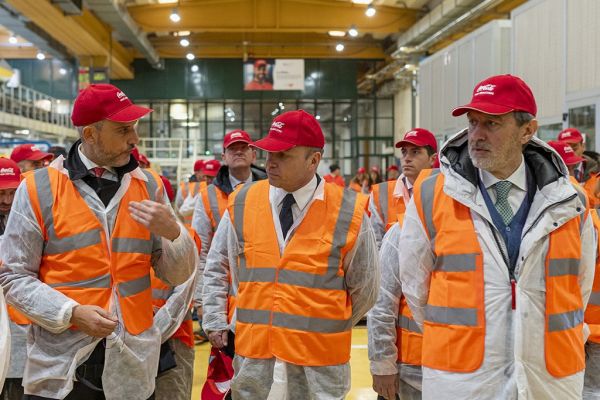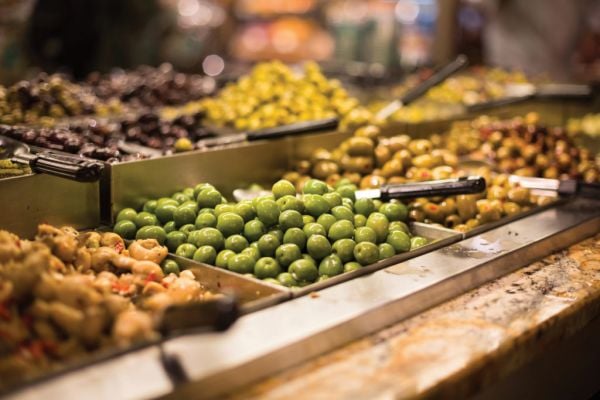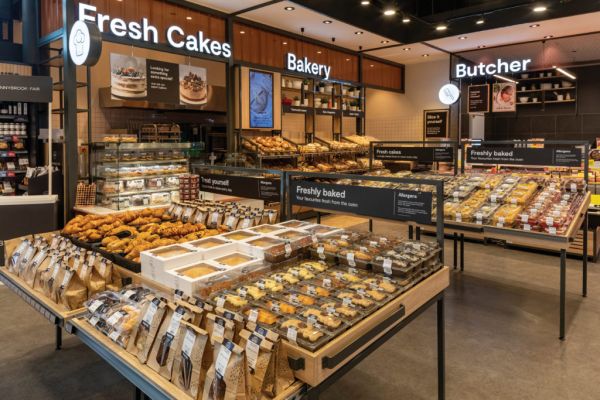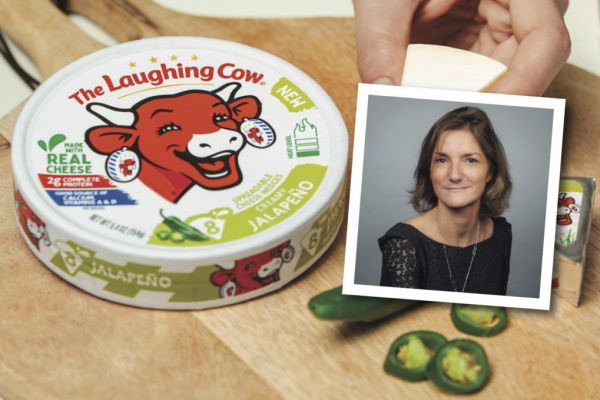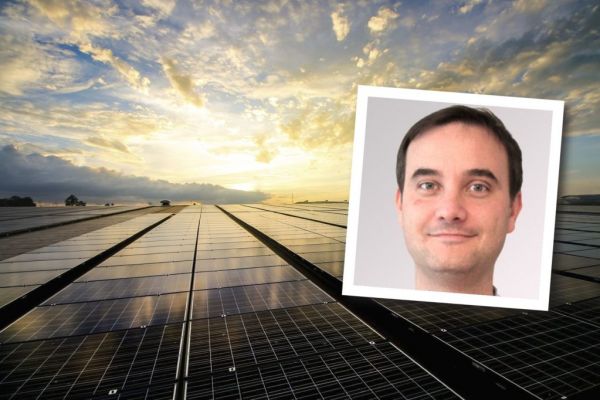In February 2024, Coca-Cola HBC was confirmed, for the seventh time, as the world’s most sustainable beverage company by the Dow Jones Sustainability Indices (DJSI).
The FTSE 100 company is also on the CDP’s A List for its commitment to transparency on climate and water. It joins the small number of companies that have achieved a double-A rating from CDP.
Marcel Martin, chief corporate affairs and sustainability officer at Coca-Cola HBC, spoke to ESM about the importance of having a defined sustainability strategy in place, and how a company is never too small to play its role in protecting the environment.
ESM: Coca-Cola HBC was recently named the world’s most sustainable beverage company, how was this achieved?
Marcel Martin: I believe our position as the world’s most sustainable beverage company is based on a clear and ambitious sustainability strategy that focuses on seven areas: climate, packaging, water, ingredients, nutrition, people and communities, and biodiversity. We have made commitments in these areas that we measure our progress against. and extended them with our pledge to achieve net zero emissions across our entire value chain by 2040.
We have been consistent in the way we have invested, innovated and collaborated over the years. This has led to results such as halving our direct emissions since 2010, and reducing our absolute total value chain emissions in scopes 1, 2 and 3 by a third.
Another example of our success is that, in 2023, 100% of our electricity in the EU and Switzerland came from renewable and clean sources.
We were very proud to be ranked, for the seventh time, as the world’s most sustainable beverage company by the 2023 Dow Jones Sustainability Indices (DJSI). While we are encouraged by our progress and such recognition, we are never complacent. We still have a lot of work to do to meet the ambitious targets we have set ourselves and our aim is to accelerate our efforts in the coming years.
What advice would you give to a company that wants to improve its carbon footprint? What are the fundamentals?
The starting point is to create the capabilities to measure and build plans to reduce emissions across your entire value chain. We found that adopting Science-Based targets was a very effective way to do this.
In fact, we were one of the first companies to set Science-Based targets, and it’s helped us standardise how we measure, report and audit our results. This also allowed us to make a consistent plan that involved everyone in the organisation working together towards measurable goals.
My second piece of advice is to view sustainability as a business opportunity – not just something you have to comply with. Sustainability initiatives can make a business more cost effective, more resilient and help it connect better with consumers, customers, suppliers and local communities.
Coca-Cola HBC is a FTSE 100 company. Do you think sustainable practices are more challenging to implement for smaller companies with limited budgets? What can be done to address this?
Companies of any size can tap into their people’s passion for creating a more sustainable future. Every successful company has a purpose that goes beyond profitability and incorporates sustainable practices. So, for example, in our company, we have reduced our energy consumption for each litre of beverage we produce by 32% over the last 12 years.
We have done this by investing in new ideas and, crucially, using initiatives that our employees have developed locally and then expanding them across the company.
What are the three critical ingredients of plastic packaging circularity?
Plastic packaging circularity starts with the design phase by ensuring that all the plastic used in our packaging is recyclable, and we are happy to say that we have achieved this objective.
The next step is working to ensure the packaging is collected. In the EU countries we operate in, we are championing the introduction of Deposit Return Systems (DRS) in collaboration with industry associations. These bring collection rates to above 90% and ensure a very good quality of packaging waste material for recycling. Seven of our EU countries have already such a system in place.
By the end of 2025, DRS will be live in almost all our EU countries. In Egypt and Nigeria, we are partnering with the industry and governments to implement the principle of the Extended Producer Responsibility (EPR) model.
Finally, the collected packaging waste is recycled to food grade quality and reused in our bottles. Currently 100% of the plastic bottles we produce in Switzerland, Austria, Romania, Italy, the Republic of Ireland and Northern Ireland are from recycled material. In this way, we close the loop of design, collect, recycle and reuse.
Coca-Cola HBC has stated its ambition to be NetZero by 2040? How will it achieve this?
We strongly believe that partnership, innovation and collaboration are the three ingredients that will help us achieve our Net Zero by 40 ambition.
In October 2021, we published our roadmap that sets out clear targets by year, category, and market. We are motivated by the fact that we have been progressing in line with the roadmap over the last three years. Working in partnership is crucial to our success. We have many examples of this, but I am very proud of a recent announcement from CDP that we are on their 2023 Supplier Engagement Leaderboard.
This shows that we are effectively engaging our supply chain partners with the joint aim of reducing our scope 3 emissions. With 91% of our emissions being in scope 3, we focus on packaging, ingredients and coolers with our partners. We are making great strides here.
We have also exceeded our 2025 commitment of having 50% of our coolers placed to market energy efficient, by five percentage points. This has reduced emissions by more than 125,000 tonnes compared to our baseline year.
What role will technology play in helping companies become more sustainable?
We really do have an innovative mindset and are always pioneering new technologies. At our Edelstal production site in Austria, we were the first company globally to have a ‘Digital Twin’ made of our production line that was made and tested by our partners, Microsoft. This created an accurate digital model of the processing system to ensure that the line runs as efficiently as possible. In just 12 weeks of the trial, there was no downtime, and the plant reduced energy usage by 9%.
In the Republic of Ireland, we’ve invested through our Ventures arm in Manna Aero, an Irish startup leading the way in food and beverage drone deliveries. We are confident this partnership will help us drive profits, deliver better customer service and, importantly, reduce CO2 emissions.
Sometimes you need to take a leap of faith to achieve your goals, and as a company, I think we are good at doing this, and have seen some real benefits.
Are there any particular trends in sustainability or reducing carbon footprint that might not be immediately obvious?
I think there is one thing that may not be that obvious. The bottles we make from recycled PET have a 50% lower carbon footprint than virgin PET resin. This shows that circular packaging is not only reducing waste, but it is also helping us reduce emissions.
One trend that I believe could have a big impact in the future is the use of consumer-owned packaging. We are exploring the innovation of consumers using their own reusable containers with an electronic chip to personalise them. This allows our drinks dispensers to recognise the consumer and their preferences – and significantly reduces packaging.
Is there any other advice you would offer to firms embarking on their own sustainability journey?
We cannot reach our 'Net Zero by 40' goal on our own – no company can. We all have a role to play as society moves towards doing business and living more sustainably.
Whatever business you are in, I would urge you to start your own journey and, if you have already started, to keep on the path. Of course it is not always easy.
For us, we value the partnerships and collaboration we have with all our stakeholders and the support and dedication they give us. Together, we can work towards a more sustainable future – and that is a goal worth pursuing.
